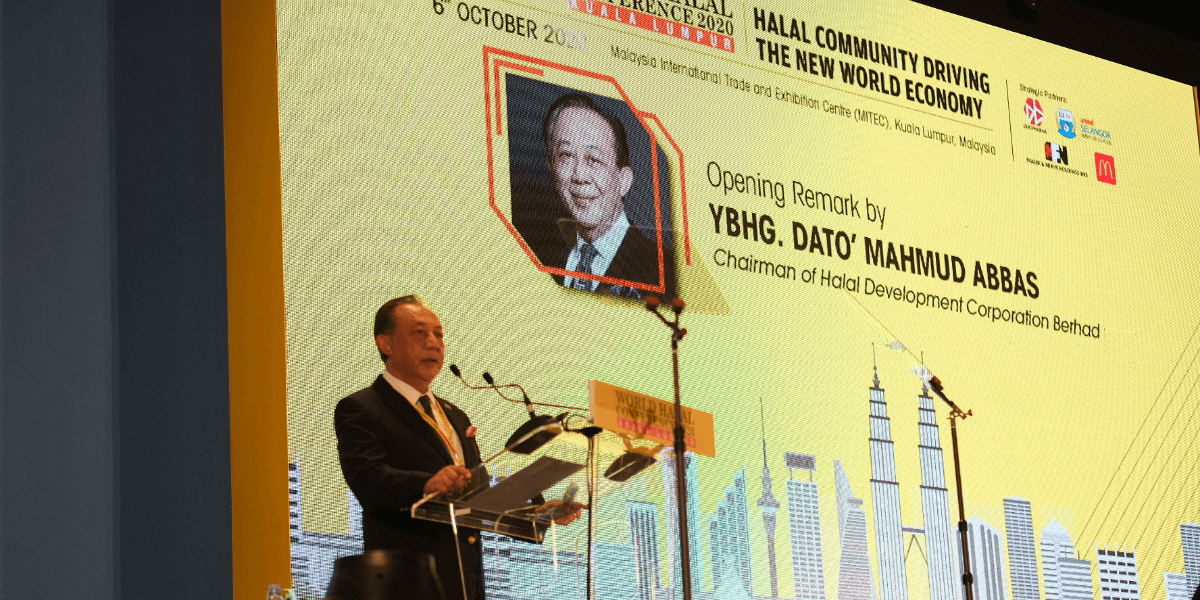
‘Dubious’ certifiers must be stopped, says HDC chief, ahead of agency’s secretariat role on Malaysia’s Halal Industry Dev’t Council
KUALA LUMPUR - “Halal-by-fax” certification bodies pose a substantial challenge to the credibility of the global halal industry, according to the chairperson of Malaysia’s Halal Development Corporation (HDC).
Speaking at the opening of the World Halal Conference in Kuala Lumpur on Tuesday (Oct 6), Mahmud Abbas said these halal agencies “are certainly ruining the industry’s integrity and they need to be stopped”.
“There are dubious halal certification bodies around the world… whereby halal certificates are just produced in-house and pasted on packaging. This is a major issue, because [certification] is costly,” he said.
There are hundreds of certification bodies, each one with differing levels of competence and credibility. JAKIM, Malaysia’s government-run halal authority, recognises 84 certifiers, in 46 countries, that agree to adhere to its standards. It is widely seen to be the leader in the field. Elsewhere, many small, private certifiers that are not affiliated with major accreditation bodies often operate outside of recognised standards and with little accountability.
To squeeze these “dubious” ones out of the market, the industry should “consider harmonising our halal standards, or at the very least, recognise each other’s standards so that producers do not have to rectify their products when entering other domestic markets,” said Mahmoud, echoing a decades-old concern.
It is significant that HDC’s chairperson launched this intervention at a time when the focus of Malaysian halal policy is beginning to move away from the bone-dry business of certification and towards the more corporate world of international trade in halal.
In the past, any declarations on regulatory matters would have been left to JAKIM, with HDC more intent on opening up new markets for Malaysia’s halal expertise. But now the country’s halal administrators are preparing for a sea-change in the way the system is structured.
HDC TAKING OVER
The outgoing Malaysian Halal Council, seen as the custodian of the country’s halal bureaucracy, had JAKIM at its heart. But HDC is due to take over the secretariat of the council’s successor, the Halal Industry Development Council, with its first meeting due to take place before the end of the year, Salaam Gateway can reveal.
Under the new structure, there will be four sub-committees led by separate government agencies.
JAKIM will be responsible for certification and enforcement, while Standards Malaysia, the national standards and accreditation body, will focus on standards development and enhancement.
SMECorp, an agency under the Ministry of Entrepreneur Development and Cooperatives, will direct entrepreneurship, and a committee on “internalisation” will be led by MATRADE, a trade agency under the Ministry of International Trade and Industry (MITI).
HDC, which is also an agency under MITI, will act as the glue to connect these subcommittees.
“We will be the initiators; as the secretariat for the council, we still have a say over what JAKIM does that has an impact on us, what SME Corp does—all those people who are on the council—so we work together as one body,” Mahmud told Salaam Gateway.
HDC chief executive Hairol Ariffein Sahari added that the council would focus more on “socioeconomic development and growth through the halal industry”.
“We have a better structure now than it was previously. At the last count, there were more than 360 organisations in Malaysia involved in halal ecosystem development, so coordination is our key challenge here,” he told Salaam Gateway.
“By having an institutional reform of [halal governance], we will have more coordinated industry development activities which are going to chart a pathway for ecosystem development for maybe the next 10-20 years down the road.
“We must cherish the diversity of halal because it is a value proposition that can cut through various sectors. As such, we cut across various ministries and agencies,” Hairol added.
This year’s World Halal Conference, which is organised by HDC, also heard that “halal is the perfect answer to how the world can manage the direct consequences of the COVID-19 crisis and come out better and stronger”.
Delivering a speech penned by Prime Minister Muhyiddin Yassin, who was unable to attend the live event as he has been in self-quarantine since Monday after a minister he had been in contact with tested positive for the novel coronavirus, minister in the Prime Minister’s Department for economic affairs Mustapa Mohamed said it was incumbent on every Muslim halal producer to ensure there is enough halal and tayyib food for global consumption.
To this end, he reaffirmed Malaysia’s willingness to work with other nations, especially within ASEAN, towards becoming self-sufficient in halal food. He also name-checked the new council for its role in pushing forward the Malaysian halal agenda.
“As the current chairman of the Asia-Pacific Economic Cooperation (APEC), I would like to call on all APEC economies to collaborate with Malaysia to make halal products more readily available, affordable and sustainable for the 1.8 billion global Muslim population,“ the prime minister said through Mustapa.
“The Halal Industry Development Council… has an important role to drive and oversee the entire halal Malaysia ecosystem, with the aim of making Malaysia a global halal hub,” he added.
(Reporting by Richard Whitehead; Editing by Emmy Abdul Alim emmy.abdulalim@salaamgateway.com)
© SalaamGateway.com 2020 All Rights Reserved
